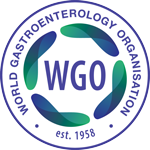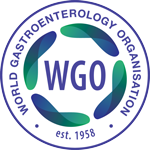An open-label randomized-controlled trial of azathioprine vs. mycophenolate mofetil for the induction of remission in treatment-naive autoimmune hepatitis
Review by Prof. Evaristus Sunday Chukwudike (Nigeria)
Study Summary
Patients with autoimmune hepatitis (AIH) almost invariably require lifelong immunosuppressive treatment. There is genuine concern about the efficacy and tolerability of the current standard combination therapy of prednisolone and azathioprine. Mycophenolate mofetil (MMF) has emerged as an alternative option. This study aimed to compare MMF to azathioprine as induction therapy for AIH. In this multicenter, randomized, open-label, two-arm trial, the efficacy, and safety of MMF as first-line treatment were compared to azathioprine, both in combination with prednisolone and evaluated over 24 weeks in treatment-naive AIH adult patients. Patients with a variant syndrome (primary sclerosing cholangitis or primary biliary cholangitis), acute liver failure, on current treatment with prednisolone or immunosuppressive medication for other indications, current systemic infection; and other clinically important medical conditions such as malignancy or depression were excluded.
Patients were randomized into the open-label MMF group [MMF was dosed at 1,000 mg/day (2 × 500 mg daily) for the first two weeks and 2,000 mg/day (2 × 1000 mg daily)], and the azathioprine group (dosage of 50 mg/day for the first two weeks and 100 mg/day subsequently). The primary endpoint was the proportion of patients who achieved biochemical remission at 24 weeks of treatment, defined as normalization of serum alanine aminotransferase (ALT) and IgG levels. Secondary endpoints evaluated the time to biochemical remission classified into non-response (defined as a <50% decrease in serum aminotransferases within four weeks after the initiation of treatment), insufficient response (defined as lack of complete biochemical response at six months), and complete biochemical response (defined as normalization of serum aminotransferases and IgG below the upper limit of normal within six months after initiation of treatment).
Commentary
The combination of MMF with prednisolone in the treatment-naive AIH adult patients demonstrated a significantly higher rate of biochemical remission than azathioprine at 24 weeks (72.2% vs. 32.3%; p = 0.004) and a favorable tolerability profile compared to the azathioprine and prednisolone combination (0% vs 12.9%; p = 0.034). The frequent discontinuation of treatment due to the side effects of azathioprine favors the superior tolerability profile of MMF in managing AIH. The outcomes of this study involving 70 adult patients with AIH provide a potential basis for re-evaluation of international guidelines on the standard of care in treatment-naive patients with AIH. Further studies on immunosuppressive agents involving a large number of patients are needed to enhance treatment strategies in AIH.
Citation
Snijders RJ, Stoelinga AE, Gevers TJ, Pape S, Biewenga M, Tushuizen ME, Verdonk RC, de Jonge HJ, Vrolijk JM, Bakker SF, Vanwolleghem T. An open-label randomized-controlled trial of azathioprine vs. mycophenolate mofetil for the induction of remission in treatment-naive autoimmune hepatitis. Journal of Hepatology. 2024 Apr 1;80(4):576-85.
View past News You Can Use commentaries

